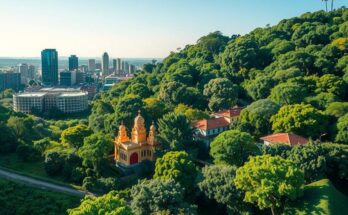Kurdish people in Syria are celebrating Nowruz with unprecedented enthusiasm under a new regime, marking a significant cultural renewal after years of suppression. The festivities express their resilience, although many still have safety concerns.
In recent years, Kurdish people in Syria faced challenges celebrating Nowruz, an important cultural festival, under the regime of Bashar al-Assad. However, following his departure, they have been able to openly commemorate this ancient celebration with unprecedented enthusiasm. This year marks the most significant Nowruz festivities for the Kurdish community in decades, reflecting an atmosphere of newfound freedom, although lingering concerns about their safety remain.
The celebration of Nowruz, which symbolizes the arrival of spring and renewal, has taken on added significance for the Kurdish populace as it embodies their cultural resilience. The transition to a more favorable political climate has enabled them to gather and express their heritage in ways that were once suppressed. Despite this progress, many participants still harbor fears regarding potential repercussions, indicating that vigilance remains essential.
The Kurdish community in Syria has embraced the opportunity to celebrate Nowruz freely after years of restriction under the Assad regime. This year’s festivities are a testament to their cultural identity and resilience. While the celebrations signify a positive shift in the political landscape, concerns for safety persist among the community, emphasizing the need for continued awareness and protection.
Original Source: www.kuow.org




